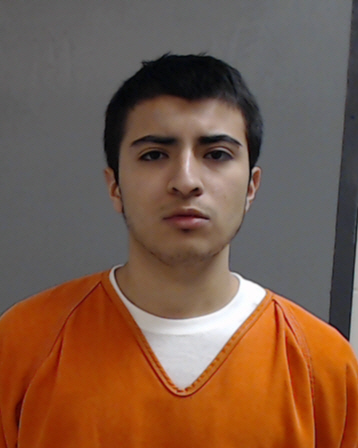EDINBURG — Statements made by one of the defendants in a Starr County murder case will not be admissible during the trial, a judge ruled Thursday morning.
Visiting Judge Rogelio Valdez determined the state did not comply with state law when law enforcement took statements from Sebastian Torres in August 2017 regarding the death of Rio Grande City teen Chayse Olivarez.
“This court rules that the state did not comply with Sec. 51.095 of the Texas Family Code when it took the two statements in question from Sebastian Torres,” Valdez said.
Torres, 18, is charged with capital murder and tampering with physical evidence in Olivarez’s death in 2017.
Olivarez, who was 17 at the time, went missing from his Rio Grande City home in July 2017 but his dismembered remains were later discovered on a Roma ranch in August 2017.
The lead defendant in the case, Jose Luis Garcia Jr., was acquitted on a count of murder and a count of tampering with physical evidence, a human corpse, at the conclusion of his trial in November. Garcia was, however, convicted on one count of tampering with physical evidence for which he was sentenced to eight years in prison.
Torres was 16 — a juvenile — when he was picked up by law enforcement in August 2017 and taken to the Starr County Sheriff’s Office in connection with the alleged crime. In accordance with the Texas Family Code, a justice of the peace read Torres his rights after which the teen was then asked if he wanted to make a statement.
Torres initially declined but, hours later, then-Justice of the Peace Jesus Barrera Jr., was called back and told Torres had decided to cooperate.
Barrera read him his rights again and then Torres signed a document stating he would make a statement.
In a video recording of the statement, which was played during a hearing in November, Barrera is heard saying that he would request that law enforcement bring Torres to him after questioning so that Barrera could determine whether the statements were made voluntarily. However, Barrera didn’t meet with Torres afterward.
Barrera testified during the November hearing that the video of the interrogation was supposed to be made available to him but it never was.
Torres’ defense attorney, Abner Burnett of the Texas RioGrande Legal Aid Public Defender’s Office, argued that a subsection of Sec. 51.095 of the Texas Family Code stated that the person who magistrated Torres — in this case being Barrera — shall determine, in writing, whether the statements were voluntary.
“That was not done here,” Burnett said.
The state, represented by 229th Assistant District Attorney Melisandra Mendoza, argued that section only required that Barrera make a written determination if he had 1) requested that Torres and the video of the statement be returned to him and 2) if he had viewed the recording with Torres or had Torres view the recording to enable Barrera to make that determination.
“Our position, judge, is that we don’t get to point 3 because we don’t have point 1 and point 2,” Mendoza said. “We don’t have the judge actually reviewing the recording so without that, there can’t be a determination.”
Mendoza also argued that Torres’ statements should be admitted because they contained facts that were found to be true.
“Mr. Torres did provide information that was not yet known to law enforcement,” Mendoza said, specifying that he gave details regarding what became of Olivarez’s remains.
However, the judge was unconvinced by the state prosecutors.
“With all due respect, I do not find that the state’s argument is persuasive on this issue,” Valdez said.
“This is a legislative mandate, this is a legislative statute,” the judge said, adding that because Torres was a juvenile, the court should be in strict compliance with the statute.
The judge also said he thought it was pretty clear from the language that if that section of the family code was not strictly complied with, the remedy was to not admit the statements into evidence.
“And it’s pretty clear to me that that’s what the magistrate intended,” he said, before issuing his ruling to throw out the statements.
The motion to suppress was the only issue that was decided during Thursday’s hearing though a few issues remain pending including a motion to amend Torres’ bond conditions so that he may take online classes at a public library.
Torres’ trial is currently scheduled for March 23.





